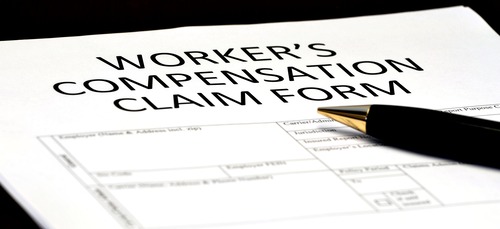Workers’ Compensation: Demotion on Workers Comp?
Getting hurt while working isn’t just a painful experience; it can be disabling. Sometimes, it leads to significant fears about your employment status and future. These fears are slightly quelled when you file for and receive workers’ compensation benefits.
Even though injured workers receive a partial replacement for their income while healing from injuries, they might still worry about how things will be when they return for work. Although the law offers protection for injured workers, what does it say about demotion while receiving workers’ compensation benefits?
For most people, their biggest worry is whether their job will not be waiting for them when they return. Others worry if the same opportunities for advancement will be available or if they’ll come back to a lesser title and responsibility. The Miami Workers’ Compensation Lawyers will answer all your questions about demotion and workers’ comp in this article.
Can Your Employer Demote You for Applying for or Receiving Workers’ Compensation?
Like most states in the country, Florida is an at-will state in employment. This means that your employer can fire or demote you at will, or you can resign from work anytime. While the law gives your employer the legal rights to demote you at any moment, Florida laws prevent that when you get injured.
An employer cannot demote or even fire a worker for filing for or receiving workers’ compensation benefits. This is known as workplace retaliation and is illegal. As a result, you should not be afraid when reporting your injuries.
You can confidently take crucial steps to receive your workers’ compensation benefits. Similarly your employer cannot fire you for filing for workers’ comp benefits. The law requires that your employer keeps you employed until you have attained the maximum medical improvement. This refers to when a medical professional confirms your condition will no longer improve.
You Can Be Demoted for Other Reasons While You’re Receiving Workers’ Compensation
The law does not guarantee complete protection from demotion. Employers might choose to demote you as long as they can prove it wasn’t because of the workers’ compensation. Due to this, your employer might take advantage of this loophole and give another reason for your demotion. Some employers might claim that it was simply a timely coincidence.
Nevertheless, you will continue to receive your workers’ compensation benefits even if your employer lowers your rank. It won’t reduce the compensation either. Once the employer’s insurance company approves your claim, it locks in your benefits till your doctor clears you to return to work.
Taking Steps to Protect Your Job, Title, and Career
You can take specific steps to ensure your employer doesn’t demote or fire you immediately after a workplace accident injury. You can file for protection under the Federal Medical Leave Act (FMLA) when you’re recovering from your injuries. This act provides workers with health conditions or family emergencies with 12 weeks of job-protected leave.
As long as you return to the workplace before or at the end of the stipulated leave, you will return to your position. However, if your employer filled your post, they have to provide a new position equivalent to the previous job title with the same benefits, pay, and status. This act doesn’t provide replacement income, so you still need to file for workers’ compensation benefits.
How To Prove Retaliation in the Workplace
Proving retaliation can be pretty tricky as your employer might argue that they had another reason for demoting you. However, your workers’ compensation lawyer can use the timing of the retaliation as a key indicator of retaliation. You must prove that you suffered a demotion solely because you filed for or you’re receiving workers’ comp benefits.
One way you can prove this is if your employer continues to change why they lowered your rank. Also, if your employer has a pattern of adverse reaction against employees who file for workers’ comp benefits, then you can use that as proof of workplace retaliation.
Let Our Experienced Workers’ Comp Lawyers Represent You
Workers’ compensation cases are tricky, especially if you have a combative employer. Most employees are scared to file for fear of retaliation. To prevent demotion, you need to have an experienced Miami workers’ compensation lawyer on your side from the beginning. Injured workers without a skilled workers’ comp lawyer never know when employers violate their rights.
Our workers’ comp lawyers will ensure your rights are protected. We understand how the workers’ comp system works and will prevent your employer from carrying out workplace retaliation against you. So contact Miami Lawyers 360 for a free consultation today.






